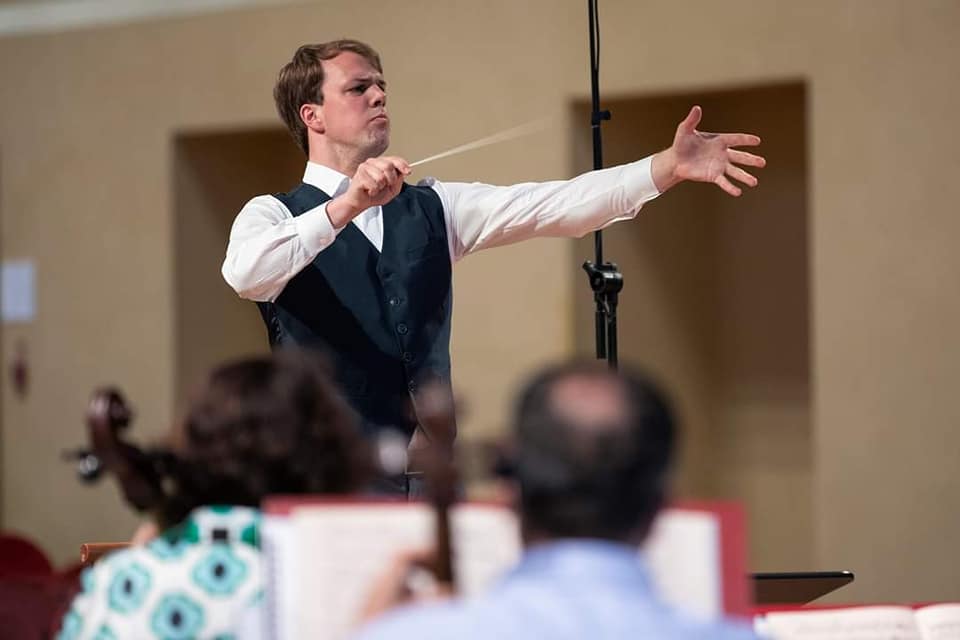How much of an ‘American musician’ was Leonard Bernstein?
mainThere’s a new biography of Lennie in Yale’s Jewish Lives series. What is the point of applying ethnic and national categories?
I take issue with the author’s subtitle in a review for the JC. Read it here.







Most definitely an American musician. Born, educated, and lived in the US. Famous for his TV series in the US, most well known as a Broadway composer (for West Side Story, set in NY), published lectures at Harvard (the Unanswered Question), without doubt his most enduring relationship with an orchestra was the New York Philharmonic. There is good reason for that subtitle.
Without a melting pot of multiple ethnicities there wouldn’t be any USA at all.
Since the entire series are called “Jewish Lives”, subtitle “An American Musician” makes perfect sense for a book about LB.
“He was tailed and tapped by the FBI as late as the 1970s. A part of him remained spiritually, morally and intellectually un-American.” If the historical record is any indication, this was the sort of harassment received by those who were exactly the most American.
HUAC tried to define people on the left as un-American, an accusation particularly leveled at left-leaning Jews. We should not let this stand.
Well said, William, completely agree! See – we can agree on some things, too!
I agree with the need in an increasingly socially cohesive world to transcend national and ethnic boundaries in music. Music itself does so, the composers do so and so should the interpreters. What did William Blake say in his poem ‘The Marriage of Heaven and Hell’ – “Damn braces, bless relaxes.”
I live in Warsaw and cover many piano festivals and competitions here. Many exceptional young pianists from so many countries and races break all the prejudicial subconscious boundaries associated with the limitations impose by national and ethnic labels. Mentioning nationality and race limits and even can prejudice judgement especially in competitions where the remarks I overhear from intelligent music lovers and even jury members often surprise me.
I remember Mitsuko Uchida saying with some heat at a seminar on the South Bank in London many years ago to a question from an ill-informed member of the audience “Well, why shouldn’t a Japanese pianist understand the Viennese classics?” Why indeed. She is one of the finest Mozart players living. What is the point in knowing she is Japanese? What does it add or subtract from her passionate performance of the Mozart D Minor piano concerto K.466?
The moment you bring ethnicity and nationality into music all sorts of filters, prejudices and limits are erected – impossible to avoid. I hear it all the time here. ‘Only real Poles can play Chopin Mazurkas!’ for example. Nonsense.
Hypothetical subtitles: ‘The German conductor Herbert von Karajan’ ‘The German conductor Wilhelm Furtwangler’ Oh really? Bring on the well known political prejudices and memories of war….
Barenboim fights this all the time in Israel with ‘The anti-Semite German composer Richard Wagner’ It really is time we rose above this sort of thing.
‘The Inuit conductor Biisaiyowaq’ – now that would be of interest but ‘American’?
I have just finished writing a biography of a brilliant, glamorous but forgotten Australian concert pianist. I wrestled for ages with the subtitle. ‘The Extravagant Life of the Australian pianist XXXX XXXX (in case the more cynical among you feel I am advertising). I decided to leave ‘Australian’ out of the equation. Adds nothing except possibly “How amazing an Australian pianist! Must buy that! Imagine Crocodile Dundee at the piano.I wonder if he played like Percy Grainger.” Well he doesn’t – more like Ignaz Friedman. Explain that about ‘a boy from the bush.’ who was Irish-Australian.
Music is not a sport where such national and ethnic distinctions are paramount for business, enhancing national self-confidence and politics.
All of the above being said, the way music and sport are merging (particularly in piano playing) such labels are probably impossible to avoid and will be with us till the crack of doom.
Cultural differences should be embraced as enriching the human species. Making music is one of the few areas in life where we can all co-operate in a common spiritual goal without the terrible limitations imposed by consciousness of nationality and ethnicity.
Time…oh and I am Australian.
Reading the review I suggest, as NL rightly states, there is indeed one important omission. How any supposed biography of Bernstein can omit reference to the enormous influence over his image, career and music-making of Harry Kraut is at the least surprising. As Bernstein’s daughter writes, it was Kraut who turned him into a “superstar”. They may only have had their business relationship for 19 years, but Kraut’s continued guardianship of the Bernstein legacy after his death was legendary in the music business.
And Goddard L made him a global record star.
Bernstein’s life was also a Gay Life.